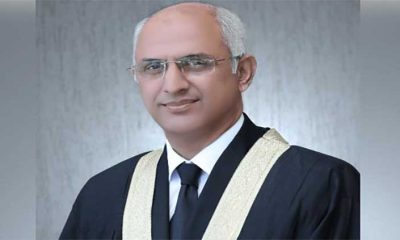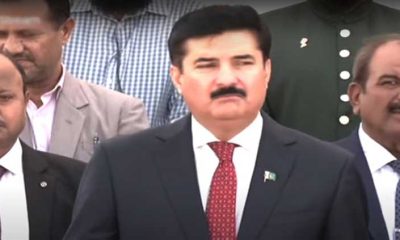Millions of Indian voters across 93 constituencies were casting ballots on Tuesday as Prime Minister Narendra Modi mounted an increasingly shrill election campaign, ramping up polarizing rhetoric in incendiary speeches that have targeted the Muslim minority.
In recent campaign rallies, Modi has called Muslims “infiltrators” and said they “have too many children,” referring to a Hindu nationalist trope that Muslims produce more children with the aim of outnumbering Hindus in India. He has also accused the rival Indian National Congress party of scheming to “loot” wealth from the country’s Hindus and redistribute it among Muslims, who comprise 14% of India’s more than 1.4 billion people.
Tuesday’s polling in the third round of multi-phase national elections has crucial seats up for grabs in states including Karnataka, Gujarat and Uttar Pradesh. Most polls predict a win for Modi and his Bharatiya Janata Party, which is up against a broad opposition alliance led by the Congress and powerful regional parties. The staggered election will run until June 1 and votes will be counted on June 4.
Modi, who voted in western Ahmedabad city on Tuesday, had kicked off his campaign with a focus on economic progress, promising he would make India a developed nation by 2047. But in recent weeks, he and the ruling BJP have doubled down heavily on their Hindu nationalism platform, with Modi employing some of his most divisive rhetoric in his decade in power.
Analysts say the change in tone comes as the BJP aims to clinch a supermajority or two-thirds of the 543 seats up for grabs in India’s lower Parliament by consolidating votes among the majority Hindu population, who make up 80%. They say Modi’s party is also ratcheting up polarizing speeches to distract voters from larger issues, like unemployment and economic distress, that the opposition has focused on.
While India’s economy is among the world’s fastest growing, many people face growing economic stress. The opposition alliance hopes to tap into this discontent, seeking to galvanize voters on issues like high unemployment, inflation, corruption and low agricultural prices, which have driven two years of farmers’ protests.
“The mask has dropped, and I think it is political compulsions that have made them do this,” said Ali Khan Mahmudabad, a political science professor at New Delhi’s Ashoka University.
Changes in the BJP’s campaign may also be a sign of anxiety around low voter turnout it had not anticipated, Mahmudabad said. Voter turnout in the first two phases have been slightly lower than the same rounds in the last election in 2019, according to official data.
“In recent elections, the BJP’s wins have been associated with getting the voters out (to vote),” Mahmudabad said. “There may be some fatigue, anti-incumbency or even disenchantment,” which has led the BJP to escalate their rhetoric.
Others in Modi’s party have echoed his remarks. A recent video posted by the BJP on Instagram was more direct. The animated campaign video, which has since been taken down from the social media platform, said if the Congress party comes to power, it will take money and wealth from non-Muslims and redistribute it to Muslims.
The Congress party and other political opponents have characterized Modi’s remarks as “hate speech” that could fan religious tensions. They have also filed complaints with India’s election commission, which is overseeing the polls, for breaching rules that ban candidates from appealing to “caste or communal feelings” to secure votes.
The commission can issue warnings and suspend candidates for a period of time over violations of the code of conduct, but it has issued no warnings to Modi so far.
Modi’s critics say India’s tradition of diversity and secularism has come under attack since the prime minister and his party rose to power a decade ago. While there have long been tensions between India’s majority Hindu community and Muslims, rights groups say that attacks against minorities have become more brazen under Modi.
The party denies the accusation and says its policies benefit all Indians.
Mahmudabad, the political scientist, said Modi’s party had counted on getting votes from the fervor over a Hindu temple that was built atop a razed mosque that Modi opened in January. Many saw the glitzy spectacle as the unofficial start of his election campaign.
“Instead, people are talking about inflation, unemployment and economic distress,” Mahmudabad said. “And so in order to galvanize and consolidate their vote, the BJP has raised the specter of Muslims.”
Post Views: 11


 Sports3 months ago
Sports3 months ago
 Fashion2 months ago
Fashion2 months ago
 Sports3 months ago
Sports3 months ago
 pakistan3 months ago
pakistan3 months ago
 pakistan3 months ago
pakistan3 months ago
 World2 months ago
World2 months ago
 World2 months ago
World2 months ago
 Sports2 months ago
Sports2 months ago






















